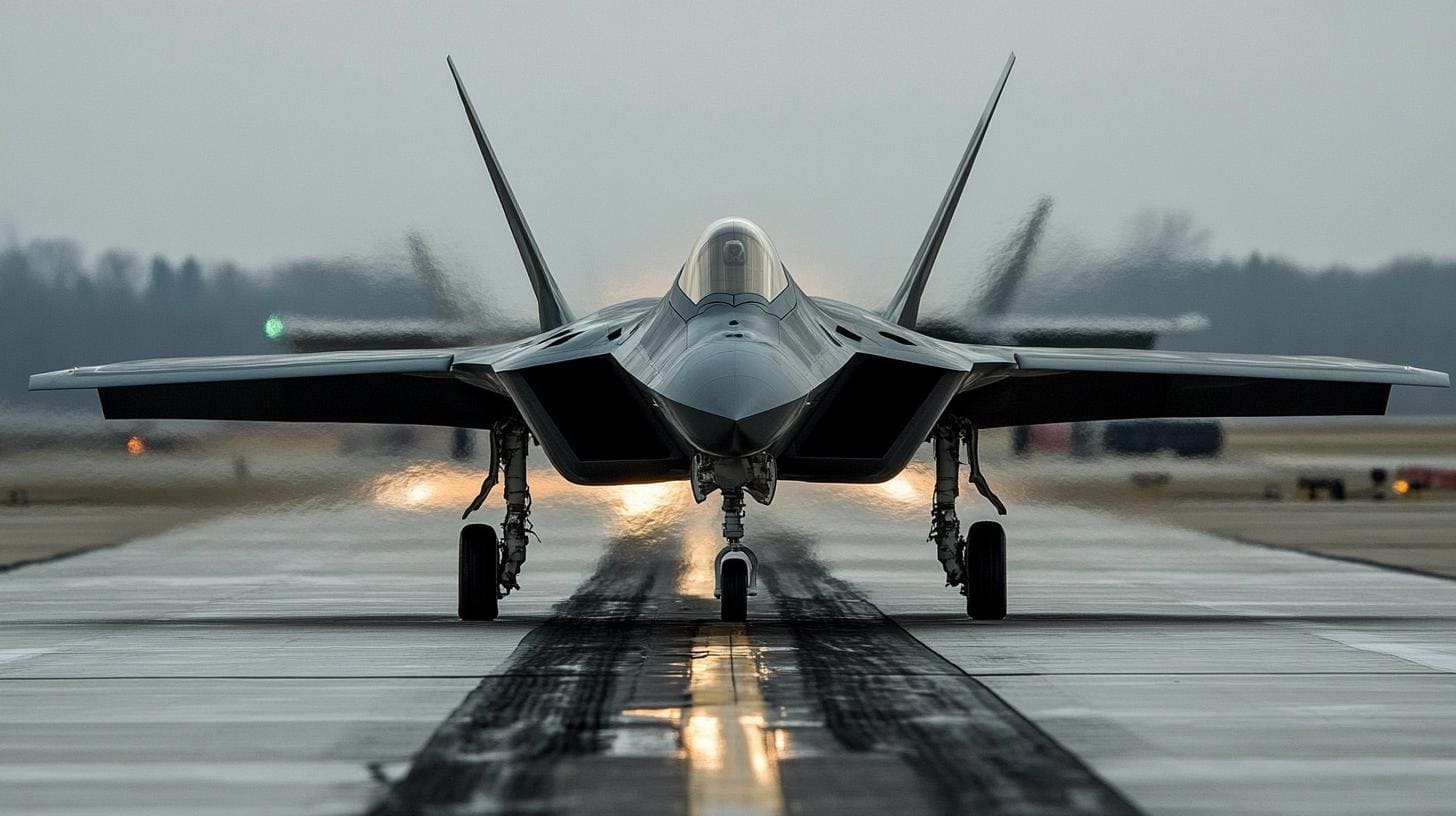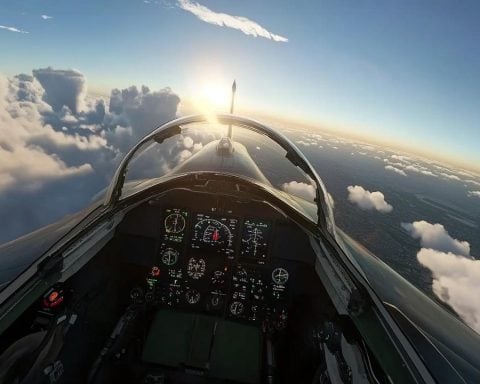Air Force Scrambles to Reassess NGAD Fighter Program Amid Soaring Costs
In a bold move, the U.S. Air Force has put the groundbreaking Next Generation Air Dominance (NGAD) fighter project on hold due to overwhelming financial demands and outdated design issues. Initially envisioned with a staggering price tag of $300 million per aircraft, this ambitious venture aimed to surpass the capabilities of the F-22 fleet. However, the Air Force faces significant hurdles in its path forward.
Budget Constraints and Design Overhaul
The project’s financial and strategic future hangs in the air as Air Force Secretary Frank Kendall demands a thorough reassessment. This reevaluation, driven by both monetary limitations and the need to adapt to rapidly advancing threats, could lead to significant shifts in the NGAD’s design — potentially resulting in a less costly, single-engine fighter.
The decision, expected by year-end, aims to outline the Air Force’s future strategy and ensure financial viability alongside cutting-edge technological requirements. As part of the evaluation, Kendall is examining various options to modify the current concept, including the possibility of integrating certain functions into other aircraft.
Other Budgetary Competing Priorities
Kendall has highlighted the constraints posed by inflation and fiscal legislation that tighten the Air Force budget, shared across several modernization projects. Alternatives, such as the B-21 bomber and the T-7 trainer, underscore the stiff competition for funding. The decision to proceed with NGAD lies in weighing its substantial cost against potential alternatives like the versatile F-35.
The definitive fate of the NGAD program remains pending, with insights anticipated soon, as the Air Force strives to balance innovation with fiscal responsibility.
The Next-Gen Fighter Debate: Balancing Innovation and Costs
The U.S. Air Force’s ambitious NGAD fighter project has captured headlines, but there’s more to the story than budget woes and design challenges. This decision has far-reaching implications beyond the military sphere, affecting technological innovation and international defense strategies.
Impact on Global Defense Dynamics
The reassessment of the NGAD program isn’t just a domestic concern; it influences global defense dynamics. As the U.S. pauses to reconsider the NGAD, countries like China and Russia continue to advance their fifth-generation fighter programs, potentially altering the balance of air power. This delay may prompt allies such as the UK or Japan, who are also developing next-gen fighters, to accelerate their own programs to fill potential gaps in collective air superiority.
Economic Ripples in Defense and Beyond
The NGAD project involved numerous contractors and manufacturers across the U.S. The halt affects jobs and investments in aerospace engineering, with ripple effects in local economies reliant on defense contracts. The Pentagon must address not only high-tech capabilities but also the livelihoods of thousands who depend on defense spending.
Technological Advancement: At What Cost?
The technological leaps envisioned by the NGAD include stealth, advanced sensors, and AI-assisted systems. These innovations hold dual-use potential in civilian sectors, like enhancing commercial aircraft safety or drone technology. However, with such promising tech tied to NGAD’s success, reevaluating the project might delay the civilian benefits expected from these advancements.
Allies and Adversaries: Who Gains, Who Loses?
Is the U.S. reevaluation a signal of vulnerability or strategic pause? Allies could view this as an opportunity to contribute more significantly to joint defenses, potentially strengthening military collaborations. Conversely, adversaries might perceive it as a gap to exploit, prompting increased espionage or cyber efforts to sneak peeks into U.S. technologies or strategies.
Is the Future Less About Piloted Fighters?
With the FAA touting unmanned systems for various sectors, could the NGAD reevaluation be a chance to pivot towards unmanned aerial dominance? Pros include lower pilot risks and reduced costs. However, critics worry about ethics and AI dependability in combat. Is an autonomous future imminent for air defense?
Weighing Political Pressures
The NGAD program isn’t just a defense concern; it’s a political hot potato. Lawmakers must balance constituent jobs with national security needs and budget constraints. Defense contractors wield significant influence, potentially complicating decisions around funding priorities.
Advantages and Disadvantages
Bold initiatives like NGAD promise cutting-edge military capabilities and economic opportunities but come with risks of cost overruns and strategic delays. Alternatives may be less costly and readily available but might not deliver the same technological edge demanded by modern warfare.
For more information on defense initiatives and technologies, visit the U.S. Air Force and U.S. Department of Defense websites.


















